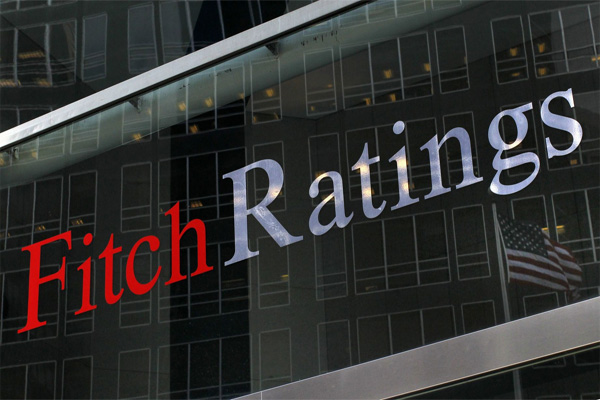
Fitch Ratings downgrades Uzmetkombinat’s rating to ‘B+’
Fitch Ratings downgrades Uzmetkombinat’s rating to ‘B+’
Tashkent, Uzbekistan (UzDaily.com) — Fitch Ratings has downgraded the long-term issuer default rating (IDR) of Uzbek Metallurgical Plant (Uzmetkombinat, UMK) to ‘B+’ from ‘BB-’, with a Stable outlook.
The downgrade reflects delays in the implementation of UMK’s transformational flat-rolled steel project, which is expected to double the company’s capacity. These delays coincided with weak market conditions in the steel sector, leading to a prolonged leverage increase above the agency’s previous negative threshold of 3x.
Although the project is nearing completion, ramp-up risks and execution challenges may slow the pace of debt reduction.
Fitch Ratings expects UMK’s liquidity to remain tight, prompting a downgrade of its Standalone Credit Profile (SCP) from ‘b+’ to ‘b’.
Under its Government-Related Entities (GRE) Rating Criteria, Fitch assigns UMK’s rating using a bottom-up approach, applying a one-notch uplift to its SCP due to government support.
UMK’s rating reflects its small scale, exposure to volatile raw material and steel prices, concentration of operations in a single country, and corporate governance constraints.
Fitch anticipates that reducing debt levels will take longer than previously expected due to delays in launching the casting and rolling complex and weakened margins in the long steel segment. The agency forecasts gross EBITDA leverage at 5.5x in 2025, exceeding the new negative threshold of 3.5x, due to the postponement of commercial deliveries to the second half of 2025 and the gradual ramp-up of the project.
EBITDA leverage is expected to decline as the project comes online but will remain at 3.4x in 2026, only dropping below 3x in 2027, when the new complex reaches full capacity.
Fitch Ratings assesses the state’s control over UMK’s decisions as "Strong", considering the 93% government stake and its influence on the company’s operations and investment program. Government support in the past has been rated "Very Strong", as nearly half of the project’s external financing has been secured by the state, despite the lack of direct guarantees on UMK’s debt.
UMK’s role in state policy implementation is rated "Strong", as the company produces 80% of Uzbekistan’s steel and meets over a third of domestic demand, a figure set to double upon project completion. A default by UMK would negatively impact Uzbekistan’s steel industry, construction sector, and mining-metallurgy industry. However, contagion risks are not factored in due to UMK’s modest external debt.
UMK’s overall support score is 25, indicating "Strong" expectations of government support under GRE criteria, justifying a one-notch rating uplift above the SCP.
Project execution risks have decreased (with 90% completion), but concerns remain due to UMK’s limited experience in implementing new projects, which could delay leverage reduction. The project’s launch has been postponed to mid-2025 (from late 2024).
80% of the total project cost (€775 million) has already been secured, including €140 million in equity capital, €110 million in loans from the Uzbekistan Reconstruction and Development Fund (FRRU), €90 million in local bank loans, and €276 million in UMK’s own funds. The remaining financing is being finalized through international banks.
The hot-rolled sheet production project is transformational for both UMK and Uzbekistan’s steel industry. UMK’s capacity will double to 2.1 million tons per year, adding product diversification beyond long steel and grinding balls. The company will become the country’s sole large-scale producer of flat-rolled steel, replacing imports.
UMK’s margins have remained low since 2022 due to rising electricity tariffs, a shift from Russian raw materials to scrap metal, and declining domestic steel prices. Once the new project reaches full capacity, margins are expected to recover to $90 per ton, though this remains below Fitch’s previous expectations.
UMK relies on raw material purchases but holds an exclusive right to buy scrap metal domestically, which may be reviewed as part of ongoing reforms. By 2025, conditions should improve with the launch of the Tebinbulak pelletizing plant. UMK is also planning a direct reduced iron (DRI) production plant in partnership with a state fund, which will be financed without UMK’s involvement.